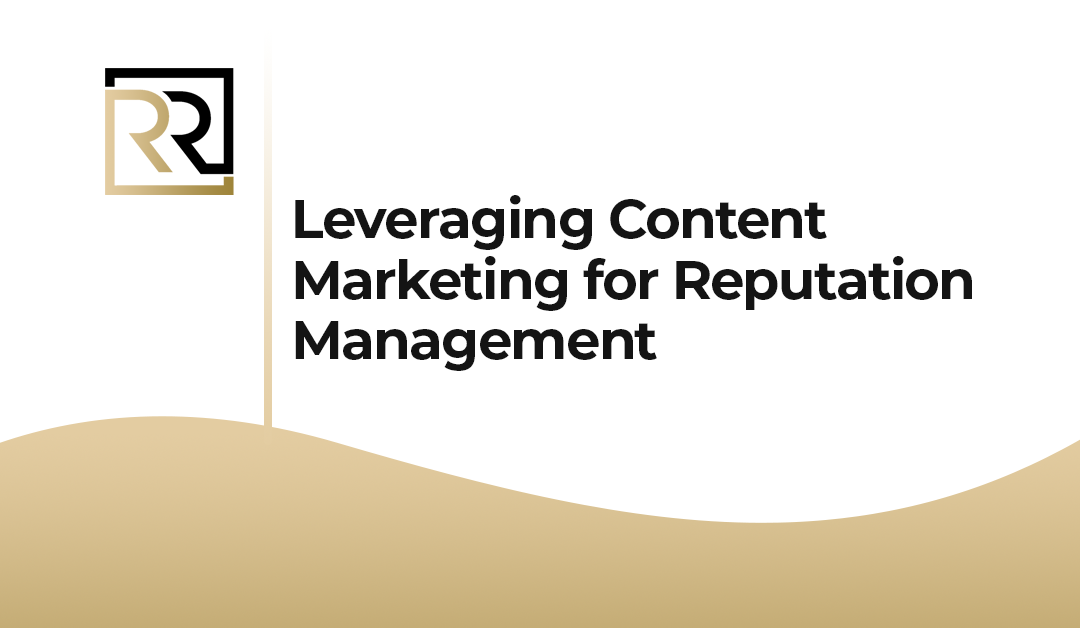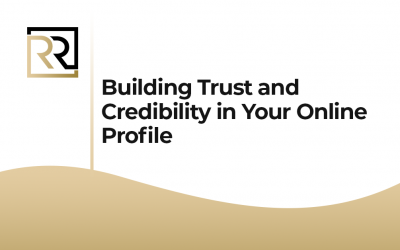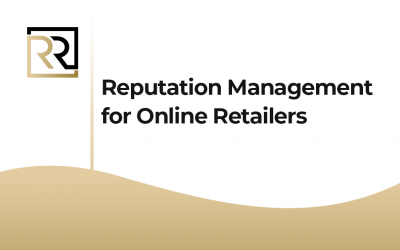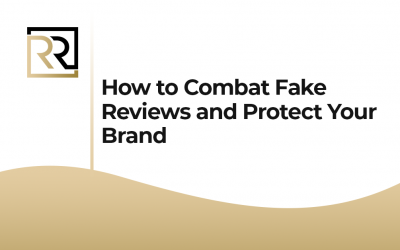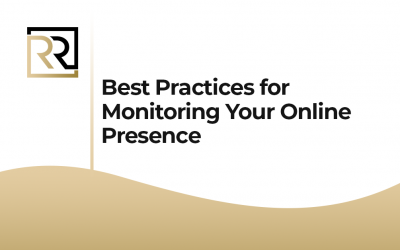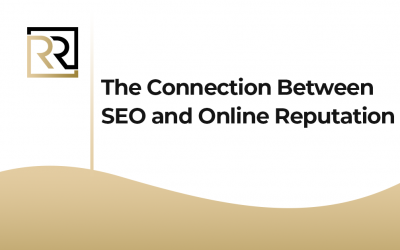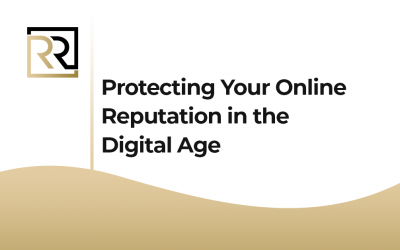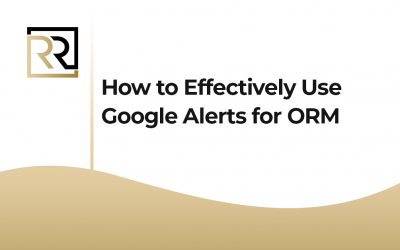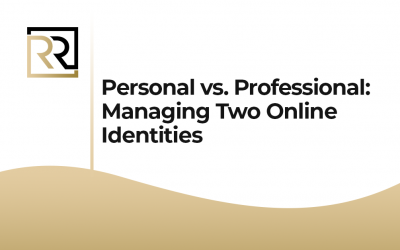Harnessing the Power of Content Marketing for Reputation Management
In today’s digital landscape, where perceptions are shaped by online content, corporate reputation management is more critical than ever. Businesses and individuals alike are realizing the impact of a positive online image on their success. Hence, one powerful tool in the arsenal of reputation management is content marketing. So, this article delves into the strategies and tactics for leveraging content marketing to not only shape but enhance and protect your reputation in the digital realm.
The Intersection of Content Marketing and Reputation Management
-
Content as a Reputation Building Block: Thus, content serves as the foundation for shaping your online reputation. What you say, how you say it, and where you say it contribute to the overall narrative surrounding your brand or personal identity. Content marketing provides a structured approach to managing this narrative effectively.
-
SEO and Online Visibility: Content marketing is intrinsically linked to Search Engine Optimization (SEO). Therefore, by creating valuable, relevant, and optimized content, you improve your chances of appearing prominently in search engine results. Also, enhanced online visibility is a key component of reputation management.
Crafting a Content Strategy for Reputation Enhancement
-
Define Your Brand Story: Before diving into content creation, define your brand story. What values, qualities, and characteristics do you want to convey? Hence, your brand story forms the cornerstone of your content strategy, providing a consistent narrative that resonates with your audience.
-
Audience-Centric Content: Understand your target audience and create content that speaks directly to their needs, concerns, and interests. Moreover, tailor your content to address the pain points of your audience, fostering a sense of connection and relevance.
Types of Reputation-Boosting Content
-
Educational Content: For example, position yourself or your brand as an authority by creating educational content. Additionally, blog posts, how-to guides, and informative articles showcase expertise and contribute positively to your online reputation.
-
Customer Success Stories: Moreover, share success stories and testimonials from satisfied customers or clients. Real-life experiences, humanize your brand, build trust, and serve as powerful endorsements that contribute positively to your reputation.
-
Thought Leadership Pieces: Furthermore, establish yourself as a thought leader in your industry by creating insightful and thought-provoking content. Whitepapers, industry analyses, and opinion pieces demonstrate expertise and contribute to a positive online reputation.
-
Interactive and Engaging Content: Foster engagement through interactive content such as polls, quizzes, and surveys. Moreover, engaging content encourages participation, amplifies your online presence, and showcases your commitment to audience interaction.
SEO Optimization for Reputation Management
-
Keyword Research: Firstly, conduct thorough keyword research to identify terms relevant to your brand or personal identity. Then, integrate these keywords naturally into your content to enhance search engine visibility and reinforce your online reputation.
-
Optimized Meta Tags and Descriptions: Ensure that your meta tags and descriptions are optimized with relevant keywords. Thus, these elements not only contribute to SEO but also influence the way your content is displayed in search engine results.
Utilizing Social Media Channels
-
Strategic Social Media Presence: Leverage social media platforms strategically to amplify your content. Consistent posting, engagement with your audience, and sharing valuable content contribute to a positive perception on these platforms.
-
Social Listening: Also, actively practice social listening to monitor conversations about your brand or personal identity. Furthermore, understanding sentiment on social media allows you to respond promptly to any emerging issues and maintain a positive online presence.
Reputation Management through Content in Crisis
-
Addressing Negative Sentiment: When faced with negative sentiment, address the issues transparently through content. Therefore, craft messages that acknowledge concerns, demonstrate a commitment to resolution, and showcase the positive actions being taken.
-
Promoting Positive Initiatives: Actively promote positive initiatives and achievements through content. Also, highlight philanthropic efforts, community involvement, or sustainability initiatives to reinforce a positive brand narrative.
Leveraging Visual Content
-
Infographics and Visual Storytelling: Visual content, including infographics and visual storytelling, is highly shareable and digestible. Hence, create visually appealing content that complements your brand story and engages your audience effectively.
-
Video Content: Embrace the power of video content. Whether it’s product demonstrations, behind-the-scenes glimpses, or informative videos, visual storytelling enhances your online reputation by providing a more personal and immersive experience.
Monitoring and Measuring Success
-
Analytics and Key Performance Indicators (KPIs): Regularly analyze analytics and KPIs related to your content marketing efforts. Track website traffic, social media engagement, and search engine rankings. This is to measure the success of your reputation management strategies.
-
Reputation Management Tools: Utilize reputation management tools to monitor mentions, sentiment, and overall online perception. Thus, these tools provide valuable insights into the impact of your content marketing efforts on your reputation.
Proactive Reputation Building
-
Consistency is Key: Maintain consistency in your content creation and distribution. Moreover, a consistent and cohesive narrative reinforces your brand story and contributes positively to long-term reputation building.
-
Anticipate and Prepare: Also, anticipate potential challenges and prepare content that addresses them proactively. Thus, being prepared allows you to respond swiftly in times of crisis and reinforces your commitment to transparency and accountability.
Seeking Professional Guidance if Necessary
-
Content Marketing Experts: Consider seeking guidance from content marketing experts. Hence, professionals in this field can provide strategic insights, help refine your content strategy, and ensure that your content aligns effectively with your reputation management goals.
-
Reputation Management Consultancies: Reputation management firms specialize in shaping and safeguarding online reputations. Their expertise in content strategies, crisis response, and continuous improvement can be instrumental in navigating the complexities of reputation management.
Conclusion: the Power of Content Marketing for Reputation Management
In the era of digital influence, content marketing has emerged as a potent force in reputation management. By crafting a compelling brand story, creating audience-centric content, optimizing for SEO, leveraging social media channels effectively, and actively monitoring and measuring success, individuals and businesses can harness the power of content marketing to shape, enhance, and protect their online reputation. Furthermore, the key lies in authenticity, consistency, and a commitment to providing value through your content. Hence, embrace content marketing as a reputation management tool, and watch as your narrative takes center stage in the digital landscape.
Services
Our Services
Search Engine Content Removal
Social Media Content Removal
Positive Content Creation
Online Reviews Optimization
Search Results Optimization
Learn
Our Blog
Building Trust and Credibility in Your Online Profile
Building Trust and Credibility in Your Online Profile Further, in the digital age, establishing trust and credibility in your online profile is paramount for personal and professional...
Reputation Management for Online Retailers
Reputation Management for Online Retailers Further, in the fast-paced world of e-commerce, building and maintaining a positive online reputation is paramount to success. Thus, with countless...
How to Combat Fake Reviews and Protect Your Brand
How to Combat Fake Reviews and Protect Your Brand Wondering how to Combat Fake Reviews? In general, in the digital age, online reviews wield tremendous influence over consumer purchasing...
Best Practices for Monitoring Your Online Presence
Monitoring Online Presence In today's hyperconnected world, monitoring online presence plays a pivotal role in shaping your personal and professional reputation. Starting from social media...
The Connection Between SEO and Online Reputation
SEO and Online Reputation Further, in the digital realm, where visibility and credibility reign supreme, the relationship between search engine optimization (SEO) and online reputation...
Protecting Your Online Reputation in the Digital Age
Protecting Your Online Reputation In an era dominated by digital interactions and virtual connections, protecting your online reputation holds immense significance. Whether you're an...
The Power of Positive Online Branding for Entrepreneurs
The Power of Positive Online Branding for Entrepreneurs The Power of Positive Online Branding, in the dynamic world of entrepreneurship, establishing a strong online brand presence is not...
How to Effectively Use Google Alerts for ORM
How to Effectively Use Google Alerts for ORM Use Google Alerts for ORM, in today's digital landscape, maintaining a positive online reputation is essential for individuals and businesses...
Personal vs. Professional: Managing Two Online Identities
Online Identities - Navigating Personal and Professional Spheres in the Digital Realm In the digital age, where our lives seamlessly intertwine with online platforms, the question of managing...


